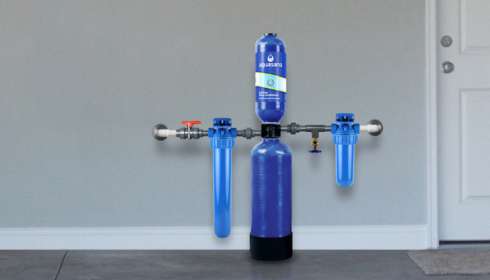There’s something almost grounding about a glass of water. Cold, clear, and—hopefully—safe. Yet, if we’re being honest, most of us rarely pause to think about what’s actually in that glass. We just trust it. Turn on the tap, fill it up, and move on with our day. But water isn’t always as simple as it seems. Behind every sip is a complicated story of pipes, treatment plants, and the invisible particles that tag along whether we want them to or not.
That’s where good old-fashioned common sense meets modern technology. You don’t have to be a chemist to care about what you’re drinking. These days, more homeowners are starting to dig deeper into what it means to keep their household water not only clean but genuinely healthy. And honestly? It’s about time.
Why Water Deserves More Attention Than It Gets
The truth is, water quality can be unpredictable. Municipal supplies might be treated, but that doesn’t mean they’re perfect. Old pipes, chlorine, heavy metals, or even subtle odors can creep in and make you second-guess that morning glass. Well water has its own challenges too—minerals, bacteria, and sediments that don’t exactly scream “refreshing.”
So what’s the fix? You’ve probably heard about filters here and there. Maybe you’ve even got a jug filter in the fridge right now. But when you step back and think about your whole home, those little pitchers barely scratch the surface. That’s when people start looking into real water treatment solutions, not just quick fixes.
From Kitchen Counters to the Whole House
Most of us start small. A faucet attachment, a pitcher, maybe a fridge filter. And while those gadgets are fine for taste, they don’t address the bigger picture. What about the water you shower in every day? Or the water that runs through your dishwasher and washing machine? After all, what touches your skin, your clothes, and even the dishes you eat off of—it all comes from the same source.
That’s why whole house water filtration systems are getting so much attention lately. They don’t just improve the glass in your hand; they change the feel of your shower, protect appliances from buildup, and give your entire home a cleaner water footprint. It’s not just about avoiding weird tastes. It’s about building a healthier environment from the ground up.
Sorting Through the Choices Without Losing Your Mind
Here’s the catch: once you start Googling water filters, it feels like opening a floodgate (pun fully intended). Carbon filters, UV purifiers, reverse osmosis units—everyone claims theirs is the “best.” And if you’re not already in the water industry, it can feel overwhelming.
But the good news is that you don’t have to get lost in the jargon. The key is matching your water challenges to the right tool. Got hard water that leaves spots on everything? A softener might be in order. Concerned about bacteria or well water quality? UV systems can give peace of mind. Just want overall better taste and fewer chemicals? Carbon-based systems are solid choices.
That’s why professionals often recommend testing your water first. A simple analysis can reveal what’s actually in it, which helps narrow down the best fit instead of guessing. When you frame it that way, best home water purification systems isn’t just a catchy phrase—it’s about finding the right combination of technology that actually works for your family’s needs.
Beyond Health: The Everyday Perks Nobody Talks About
It’s easy to think of filtration as purely about safety, but it has plenty of lifestyle perks too. Imagine not scrubbing scale from faucets every other week. Or washing your hair and realizing it feels softer because it’s not coated in mineral residue. Even cooking changes—boiling pasta or brewing coffee with clean water genuinely tastes different.
And then there’s the lifespan of your appliances. Dishwashers, washing machines, even your water heater—all of them benefit when the water running through them isn’t filled with sediment or chemicals. It’s one of those subtle savings that you don’t always notice upfront but adds up quietly over the years.
Making the Decision Without Overcomplicating It
Here’s the thing: clean water is non-negotiable. Yet, it doesn’t have to feel like rocket science. If you’re weighing the options, don’t fall into the trap of chasing perfection or getting bogged down by every single review online. Start simple: test your water, identify the top issues, and choose a system that addresses those.
Think of it like upgrading your car. You don’t buy the fanciest one just because it exists—you buy the one that fits your lifestyle and keeps you safe. Same idea here. A balanced, thoughtful investment in water quality pays off not just in peace of mind but in how you live day to day.
Final Thoughts: A Glass Half Full
At the end of the day, clean water is about more than hydration. It’s about comfort, health, and even a little pride in knowing your home is running on something better than “just okay.” You don’t need to overthink every drop, but you also shouldn’t ignore it.

